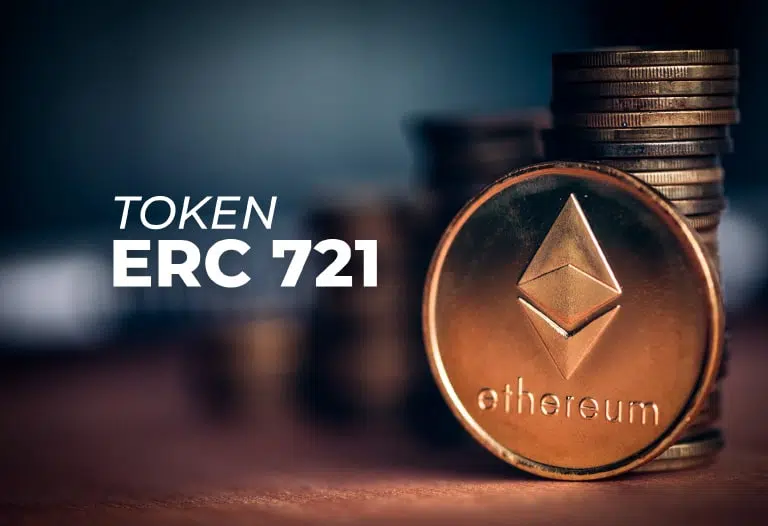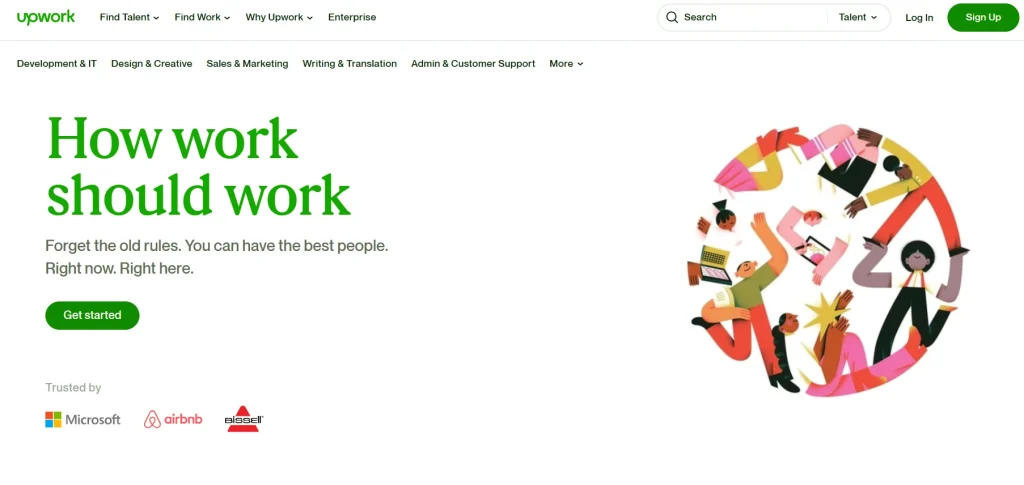Hiring NFT developers often turns out to be more complicated than many businesses initially expect.
When companies start looking for NFT developers, the conversations can be promising at first. Many teams claim experience, share similar portfolios, and use the same technical language. However, as discussions go deeper, it becomes harder to understand who truly knows how to build NFT products and who is simply offering general blockchain services.
This uncertainty creates real risk. Choosing the wrong team can result in security issues, unstable platforms, missed timelines, or products that fail to support the intended business model. For businesses investing in NFT marketplaces or NFT-based platforms, these outcomes are not just technical problems but costly business mistakes.
This guide is written for companies and startups that are planning to hire NFT developers in 2026. It aims to help you understand what truly matters during the hiring process, how to assess real experience, and how to choose a development team that can support your NFT project with clarity and confidence.
Outsource vs. Freelance vs. In-house
As is known, the rise of NFT developers is imminent. However, the cost of hiring and the roles can fluctuate due to each team of programmers. Therefore, let’s look at the main approaches of NFT developers for hire, as well as the pros and cons of each type – outsource, freelance and in-house.
Outsource NFT developers
This is the most popular option for businesses and companies due to the expertise of outsourcing firms out there. More specifically, when a business attempts to hire an outsourced team of NFT developers, they eventually get the most qualified programming-related result without splitting up their business concentration.
Pros
- Low yet concise cost of hiring and location (if needed): An outsourcing team of developers will always have a concise hiring cost, depending on your project’s scale. Moreover, you won’t have to hire a location for them, as they already have a fixed site.
- High-quality results due to the expertise of programmers: Outsourced NFT developers have enough knowledge and proven projects to showcase their knowledge; therefore, the result will always be assured.
- The flexibility of hiring time: There are many different firms offering outsourcing services; therefore, it should be easy for businesses to hire a team of NFT developers 24/7.
- Compatible with non-crypto and crypto-related companies: The expertise of outsourcing teams of NFT developers should help even non-crypto businesses to participate in the world of blockchain and NFTs with the concepts showcased.
- More time for other business development processes: Companies run on programming and other aspects. Therefore, by outsourcing NFT developers, businesses will release a programming burden and focus more on the business-related side.
Cons
- Hard to find a trustworthy company: This is due to the variety of outsourced blockchain development teams and the unproven qualities of some outsourcing firms that may need to be clarified for non-crypto businesses.
- Time zones can be different: Hiring a quality team of programmers can be difficult due to their fixed location. In other words, the communication process can’t be assured for both businesses’ time and internet connection.
- Working process can’t be controlled: Businesses can keep track of their projects due to the signed agreement of both parties, but not all the time. Therefore, the working process can be fully accessed, which may delay the project schedule.
Freelance NFT developers
The freelancing approach is used when companies want to conduct small projects like the latest airdrops. Moreover, freelancers may commit to more than one project; therefore, it’s crucial always to keep track of their working process. While the cost of hiring an NFT-related freelancer is relatively lower than the whole team, communication and results should be vigorously assessed and discussed when the project is completed.

Pros
- Cheapest means of hiring NFT developers: This is undoubtedly the most affordable way for companies and businesses to hire and conduct the project, as the cost is spent only on one developer.
- Best for small and quick NFT projects: due to the scale of hiring, the size of projects should be relatively small – NFT drops may be the perfect choice for crypto-related businesses.
- The flexibility of hiring time: Similar to hiring an outsourcing team, you can get an NFT programmer working freelance 24/7.
Cons
- Communication problems: This can be difficult due to the time zones, as well as the internet connection that harnesses the ability to communicate between parties.
- Expertise can be limited: Though freelance NFT developers have enough qualifications to attain NFT projects, their knowledge is limited to one or two aspects related to NFT development. In some cases, businesses may need help to negotiate the required tasks.
- Working performance can’t be assessed: We agree that keeping track of their work is the main problem when hiring outsourced developers. Freelancers tend to attain multiple projects at a time, which more or less affects the process of your schedule.
In-house NFT developers
If you have a sustainable source of cash and want to invest NFTs in your team, then in-house employees should be the best approach. Moreover, the process and result of your NFT project will be assured and assessed thoroughly. However, the cost of recruitment, training, and location will be a burden of your own, as well as the more extensive time your business has to spend from scratch.
Pros
- Fully control of the working process: By having all developers under a single roof, the working process should be transparent. The whole team will be attached to a fixed project for the most concentration; therefore, each step of the development process can be controlled thoroughly.
- No communication problem: Another benefit of working together in the same room is the concise and direct communication. A face-to-face discussion should solve the problem much more easily without chat rooms and inboxes.
- The result can be assessed and assured thoroughly: By the end of the project, the team will have the chance to sit down and see through the process. Moreover, they can propose some solutions to minimize any problem that occurs, which will improve the working environment.
- Works for any type of NFT project: To keep the business running, the team will have to take on any type of NFT project for the company’s sake, regardless of its significance.
Cons
- The cost of human resources and location is high: Start up a company requires a lot of money and effort to recruit and train its employees. Moreover, the cost of hiring a place for work is fluctuated – which, at a time, can be skyrocketed.
- Lengthy training and development time: The time to start a business from scratch is much longer due to the training process and working ethics foundation. This could be a problem because of the rapid development of blockchain and NFTs.
- Difficult for non-crypto companies in the transition process: Non-crypto businesses will find it hard to shift from regular web-app development to blockchain-related aspects due to the expertise of employees and the cost of new recruitments.
The complete comparison of each type is summarized here:
| Outsourced | Freelance | In-house | |
|---|---|---|---|
| Price | Moderately cheap | Cheap | Expensive |
| Time | Fast | Slow | Prolonged |
| Quality | Moderate to high, depends on the project | Immeasurable | High but required assessment and training |
| Process | Can be tracked | Can’t be tracked | Can be tracked thoroughly |
| Expertise | High | Fluctuated | Low to intermediate, required time to develop |
- See our guide on How to estimate NFT marketplace development cost
Skills required for NFT developers
Choosing the right NFT developer means choosing someone who understand both the tech and the user experience. These skills help ensure your NFT platform is secure, scalable, and easy to use – giving you the best shot at success in a fast-moving market. Here are some of the most requested knowledge that companies may need.
1. Blockchain platform & standards
- Enthereum & ERC-721, ERC-1155: Ethereum is the most widely used blockhain for NFTs. Developers must understand ERC-721 (for single NFTs) and ERC-1155 (for multiple NFTs) to build functional, tradable assets.
- Solana & Flow: These are fast-growing alternatives to Ethereum with lower transaction fees and faster speeds. If you want to reach more users, developers should be familiar with these platforms too.
- Smart contrac development: Smart contracts are the backbone of any NFT project. They control how NFTs are created, owned, and transferred – so writing them securely is essential.

2. Programming language
- Solidity: The go-to language for writing smart contracts on Ethereum.
- Rust: Used mainly for Solana-based NFT projects, known for speed and security.
- C & C++: These languages are useful for performance-intensive features in NFT marketplaces or NFT apps, though they are not always required for basic functionality.
3. Web & app development
Developers should be skilled in HTML, CSS, JavaScript, and modern framworks like React or Vue.js to build smooth user interfaces for NFT marketplaces.
Good web development ensures your users can mint, buy, and trade NFTs easily.
4. Blockchain integragion & tools
- Wallet integration: Connecting with wallets like MetaMask or WalletConncet is crucial for any NFT platform.
- Smart contrac tools: Tools like Remix, Hardhat, or Truffle help developers write, test, and deploy smart contracts safely.
- IPFS/ Decentralized storage: NFTs often link to images or assets stored off-chain. Developers need to know how to use IPFS to ensure your assets stay accessible and secure.
5. Crypto & Tokenomics knowledge
Developers should understand how crypto transactions work, what gas fees are, and how to structure NFT metadata correctly.
If you’re building a game or ecosystem, knowledge of tokenomics helps in designing balanced in-game economies using NFTs.
Where to find NFT developers?
Freelancing/Outsourcing websites
Some websites provide users with freelancing and outsourcing options, especially when it comes to NFT and blockchain developers. These websites may allow access to working expertise, ratings, and portfolio. Therefore, businesses and companies can choose the best option possible. Some notable freelancing/outsourcing websites are Upwork, Freelancer.com and Clutch.
Social platforms
If you want to expand your connection and hire the best developers on the internet, then the social platform is the approach that may fit. These channels can provide a search bar function, which helps users find the exact options through keywords. LinkedIn, Facebook and Behance are the three most usable options.
Word of mouth
One of the best ways to choose any NFT developer type is by endorsing people. The working reputation of a person or a team can be spread in the most positive way, which helps both non-crypto and crypto-related businesses to choose the best one possible. Businesses can reach out to partners online or through meetings, leading to an agreement in a nick of time.
Top freelancing sites for hiring NFT developers
Here are some of the best freelancing websites for you to find NFT developers for hire based on users’ ratings and our research.
1. Upwork

Upwork has a variety of NFT developers to choose from. Those developers will be listed through ratings, relevancies, portfolios and endorsements from which businesses can choose. Moreover, companies can post a job recruitment post and place the desired bid for freelancers.
2. Fiverr
Fiverr is currently one of the best freelancing websites companies and developers use and commit to. NFT-based jobs and developers are listed daily at competitive prices; therefore, this site is perfect for every user with the required skills and expertise.
3. Toptal
Finding NFT developers for hire at Toptal is an easy thing to do and a quality choice. This is because all freelancers working through Toptal are among the top 3% best, with skills proven on many projects and endorsed by qualified clients.
4. Freelancer.com
Freelancer.com helps businesses choose the best NFT engineers from every corner of the world with just a single click-to-search feature. To be more specific, companies can post a job with the needed requirements or use the Recruiter Service to filter out the best developers.
5. Clutch
This website is also an awesome place for companies to find NFT developers for hire. Moreover, Clutch has the feature of helping businesses choose outsourcing firms, which lists out every information benefitted to customers such as portfolios, ratings and reviews.
6. Guru
The best NFT-related freelancers are working on the Guru platform. This is because Guru is user-friendly for both businesses and developers. It is bundled with secured options that will ensure both parties’ working process and the agreed payment.
7. PeoplePerHour
PeoplePerHour (PPH) is the perfect choice for non-crypto businesses that want to shift from the usual web/app development to blockchain-related development. Hiring NFT developers is easy, and tracking them is easier on PPH thanks to the invoicing, review and messaging features.
8. Arc
Within 72 hours, Arc can ensure companies find the best NFT developers. Businesses can just explain the concept and requirements for the upcoming projects, and the rest is checking tasks for the chosen programmer.
9. Elite Brains
Being a worldwide network of over 8300+ certified freelancers, companies will have many options. Besides, Elite Brains has the option of hand-picking NFT engineers through the testing results, which assessed developers’ skills on the spot.
10. Turing.com
Turing.com connects high-quality NFT engineers to every company that wants to build an NFT project from scratch. Their remote developers are among the 1% best, with over 100+ skill sets for companies to choose from and compensate with an affordable price.
11. Gun.io
Gun.io is compatible with companies with crypto-related experiences that prefer applications over websites. Developers on this website are highly endorsed by trustable clients, with skills and expertise proven on numerous projects.
12. Supersourcing
Supersourcing is the website that connects top-rated NFT programmers to top-rated companies. Those profound developers are trusted by global brands and businesses and have the required skills that companies may need for their blockchain-related projects.
13. lemon.io
Developers who want to join lemon.io have to pass the entrance test. Therefore, the quality and expertise will be assessed on the spot, which helps the companies on choosing the most qualified and dedicated programmers possible. .
Wrapping up
Finding NFT developers for hire can be tricky, not only because of the variety of different NFT-based outsourcing firms but also for the quality of them. Therefore, businesses and companies will get ahead of the crypto-based race by having the most qualified team of NFT programmers in their hands. If you want to see more interesting blockchain-related articles, check out Synodus’s blog page.
And if you are struggling to build your NFT marketplace, we’re here to help.
Frequently asked questions
When hiring NFT developers, focus on their reviews and ratings to gauge reliability and expertise. Consider their location and time zone to ensure smooth communication, especially for long-term or large-scale projects. Lastly, plan your budget carefully, as NFT development can require significant investment depending on complexity.
The salary of NFT developers varies based on the working model. Freelancers typically charge $45–$60/hour, while in-house developers earn around $61–$80/hour. Outsourced developers from agencies may charge higher, ranging from $81–$100/hour, depending on expertise and project scope.
More related posts from our Blockchain blog you shouldn’t skip:
- White label NFT marketplace – A full guide for businesses
- The complete guide of how to find the best NFT developers (2026 edition)
How useful was this post?
Click on a star to rate it!
Average rating / 5. Vote count:
No votes so far! Be the first to rate this post.




